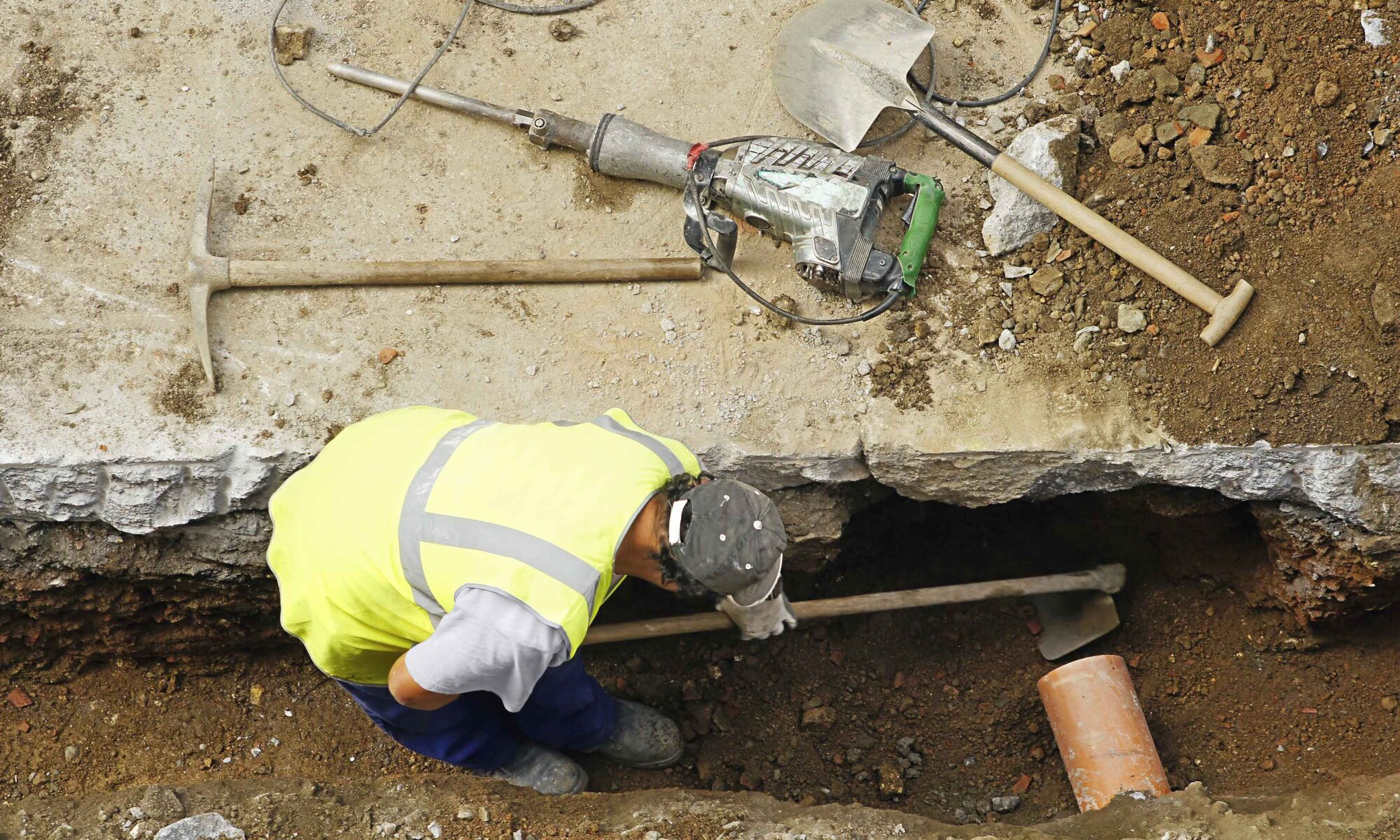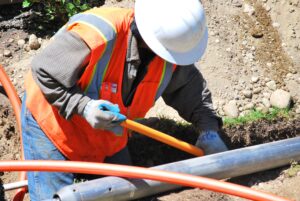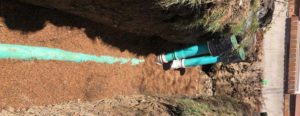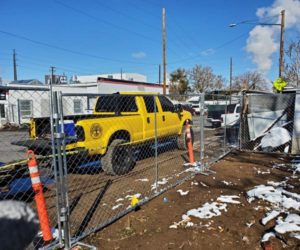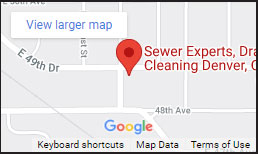Introduction
Your sewer line does a tough job every day. It carries all waste away from your Denver home. But sewer pipes don’t last forever. Most sewer line replacement Denver jobs happen when homeowners ignore early signs. Then small problems turn into big disasters.
So, how do you know when you need sewer line replacement Denver services? The signs are clearer than you think. Collapsed sewer line signs show up in your yard, your drains, and even your water bill. Plus, catching these red flags early saves you thousands of dollars.
SewerEx has served Colorado homes for over 20 years. We’ve seen every type of broken sewer pipe Denver residents face. Also, we know exactly what warning signs mean you need help now. This guide shows you the seven main sewer line replacement Denver indicators. Then you can act fast and protect your home.
Table of Contents
- What Is Sewer Line Replacement Denver and When Do You Need It?
- 7 Clear Collapsed Sewer Line Signs to Watch For
- How Broken Sewer Pipe Denver Problems Start
- What Causes Sewer Lines to Fail in Colorado
- Your Sewer Line Replacement Denver Options Explained
- How to Find Reliable Sewer Repair Near Me Colorado
What Is Sewer Line Replacement Denver and When Do You Need It?
Sewer line replacement Denver means taking out your old pipe. Then workers install a new sewer pipe system. Most Denver homes have sewer lines that are 30 to 50 years old. These pipes crack, break, and collapse over time.
Your sewer line runs from your house to the city main. It carries all waste water away from your home. So when this pipe fails, waste has nowhere to go. The result is sewage backups, yard flooding, and health risks.
But not every sewer problem needs full replacement. Sometimes professional drain cleaning services can fix simple clogs. Other times, pipe lining repairs small cracks. However, major damage requires complete sewer line replacement Denver services.
When Repair Won’t Work Anymore
Some broken sewer pipe Denver issues are too big for patches. Collapsed pipes need replacement, not repair. Tree roots that crush your line require new pipes. Also, pipes with multiple cracks in several spots need replacing.
Most sewer line replacement Denver projects happen for these reasons. First, the pipe is too old and weak. Next, tree roots have destroyed the line. Then, the pipe has collapsed in on itself. After that, multiple sections have major cracks.
SewerEx uses camera inspections to see inside your pipes. This shows us exactly what’s wrong with your sewer line. Then we tell you if you need repair or replacement. Plus, we give you honest answers about your options.
Key Takeaway: Full sewer line replacement Denver becomes necessary when pipes collapse, suffer extensive root damage, or have multiple serious cracks that repair cannot fix.
7 Clear Collapsed Sewer Line Signs to Watch For
Collapsed sewer line signs appear in many ways. Your home sends you warnings when pipes fail. But many Denver homeowners miss these red flags. Then they face emergency repairs that cost much more.
Here are the seven main signs you need sewer line replacement Denver help right now. Watch for these problems in your home and yard.
Multiple Drain Clogs Happening at Once
Does more than one drain back up at the same time? This is a major collapsed sewer line sign. When your main sewer line blocks or breaks, every drain stops working.
For example, you flush the toilet and water backs into your shower. Or you run the washing machine and your kitchen sink gurgles. These connected problems point to your main sewer line. Also, chemical drain cleaners won’t fix this issue.
A broken sewer pipe Denver clog affects your whole house. Single drain clogs happen in just one spot. But multiple backups mean the main line has failed. So call for professional help immediately when you see this.
Sewage Backing Up Into Your Home
Sewage backup is the worst collapsed sewer line sign you can see. Raw sewage comes up through your drains, toilets, or tubs. This creates a health emergency in your home. Plus, the smell is terrible and the cleanup is expensive.
Most sewage backups happen in your lowest drains first. So basement drains and toilets show problems before upstairs ones. When waste water has nowhere to go, it finds the easiest path back. Then it floods your home with contaminated water.
Never ignore sewage backups. They mean your sewer line replacement Denver work can’t wait. Also, sewage contains harmful bacteria that make your family sick. Contact a licensed sewer repair near me Colorado company immediately when this happens.
Wet Spots and Sinkholes in Your Yard
Do you see soggy areas in your lawn? Are there small holes forming near your sewer line path? These outdoor signs mean your pipe is leaking or broken underground.
Broken sewer pipe Denver leaks create wet spots even during dry weather. The grass in these areas grows extra green and lush. This happens because sewage acts like fertilizer. But it also means contaminated water is soaking into your soil.
Sinkholes form when soil washes away through pipe cracks. The ground above the leak loses support and sinks down. Also, you might smell sewage odors in your yard. These collapsed sewer line signs show major damage under your property.
Expert Insight from Marisa Beaver, Owner of SewerEx: Yard sinkholes near your sewer line path mean the pipe has failed. We see this often with 50+ year old clay pipes in Denver. The pipe cracks or collapses, and soil washes into it. Then your yard develops dangerous holes. Act fast before the damage spreads to your foundation.
Slow Drains Throughout Your Entire House
One slow drain might just need simple cleaning. But slow drains in every part of your house signal bigger trouble. This is one of the early collapsed sewer line signs to watch for.
When your main sewer line develops problems, water drains slowly everywhere. Your sinks take forever to empty. The bathtub water sits there for minutes after you finish. Also, you hear gurgling sounds as water struggles to flow through damaged pipes.
Most people try drain cleaning products first. But these won’t help with sewer line replacement Denver issues. The problem exists deep underground where chemicals can’t reach. So if all your drains are slow, the main line needs professional inspection.
Pro Tip: Test all your drains at once to spot sewer line problems. Run water in multiple sinks, flush toilets, and start appliances. Watch how each drain performs. If everything drains slowly together, your main sewer line is failing.
Unexplained Foundation Cracks Appearing
Foundation damage often connects to broken sewer pipe Denver leaks. Water from sewer leaks saturates the soil around your foundation. This causes soil to shift and settle unevenly. Then your foundation develops new cracks.
Look for vertical cracks near corners of your home. Check for cracks in your basement walls or floors. Also, watch for doors and windows that suddenly stick or won’t close properly. These changes suggest foundation movement from sewer leaks.
Sewer line replacement Denver work protects your foundation. Fixing the leak stops more water damage. Then you can address foundation repairs before they get worse. Plus, catching this early prevents extremely expensive foundation work later.
Your Water Bill Jumps Without Explanation
A spike in your water bill can mean a hidden sewer leak. Broken pipes let water escape underground before it reaches your home. Then you pay for water you never use.
Compare your recent bills to past months. Look for sudden increases of 20% or more. Also, check if your water meter runs even when no fixtures are on. These signs point to leaks somewhere in your system.
Not all water bill increases come from sewer lines. Sometimes the water main has leaks instead. But combined with other collapsed sewer line signs, a high bill confirms major problems. So schedule a camera inspection to find exactly where water is escaping.
Pest Infestations Increasing Around Your Home
Rats and insects love broken sewer pipes. Cracks in your sewer line give pests easy access to your home. They travel through damaged pipes right into your house.
Notice more rats or mice suddenly? Seeing roaches in new areas? These pests might be using your broken sewer pipe Denver system as a highway. Sewer line cracks create perfect entry points for unwanted visitors.
Also, sewer odors attract certain pests. Flies gather near leak sites. Rats smell sewage from far away. So pest problems combined with drain issues mean your sewer line needs checking. Then sewer line replacement Denver services solve both problems at once.
How Broken Sewer Pipe Denver Problems Start
Understanding how pipes break helps you prevent damage. Most broken sewer pipe Denver issues develop slowly over many years. But some problems happen suddenly without warning.
Denver’s unique conditions create specific sewer line challenges. Our soil type, weather patterns, and landscaping all affect pipes underground. Also, the age of Denver neighborhoods means many sewer lines are past their lifespan.
Age and Corrosion Take Their Toll
Most Denver homes built before 1980 have clay or cast iron sewer lines. These materials last 40 to 60 years under good conditions. But after decades underground, they weaken and fail.
Clay pipes become brittle with age. They crack when soil shifts or freezes. Cast iron pipes corrode from the inside out. The constant flow of waste water eats away at the metal. Then the pipe develops holes and collapses.
Modern PVC pipes last much longer than old materials. They resist corrosion and stay flexible. So sewer line replacement Denver projects using PVC protect your home for 100+ years. Also, new pipes handle Denver’s soil movement much better.
Tree Roots Invade and Destroy Pipes
Tree roots cause more broken sewer pipe Denver damage than almost anything else. Roots seek out water sources underground. Your sewer line provides exactly what they need. Then they grow into any tiny crack they find.
Once inside your pipe, roots expand rapidly. They block the pipe completely. Also, they crack the pipe wider as they grow. Some tree roots crush sewer lines entirely. This creates complete collapsed sewer line signs throughout your home.
Common Denver trees like cottonwoods, willows, and elms have aggressive roots. These species can damage pipes up to 50 feet away. So even trees that seem far from your house cause problems. Regular root removal helps, but eventually you need sewer line replacement Denver services.
Ground Shifting and Settling Cracks Pipes
Denver sits on expansive clay soil. This soil swells when wet and shrinks when dry. The constant movement stresses underground pipes. Over time, this causes cracks and breaks.
Freezing temperatures make soil shift even more. Water in soil expands when it freezes. This pushes against your pipes with tremendous force. Also, Denver’s freeze-thaw cycles happen repeatedly each winter. Each cycle weakens your sewer line a little more.
New construction nearby also causes ground settling. Heavy equipment compacts soil around your pipes. Then your sewer line loses support and sags. These sections collect waste and clog easily. Eventually, the unsupported pipe collapses completely.
Common Mistake to Avoid: Many Denver homeowners ignore small sewer problems because they seem manageable. But collapsed sewer line signs always get worse, never better. Small cracks become big breaks. Minor clogs become complete backups. Act on early warnings to avoid emergency sewer line replacement Denver costs.
What Causes Sewer Lines to Fail in Colorado
Colorado’s climate and soil create unique challenges for sewer systems. Understanding these factors helps you protect your pipes. Also, knowing what damages lines most helps you watch for problems early.
Denver averages over 300 days of sunshine yearly. But we also get harsh winter freezes. These extreme conditions stress sewer pipes constantly. Plus, our clay soil composition makes things harder.
Freeze-Thaw Cycles Damage Underground Pipes
Colorado experiences intense freeze-thaw cycles each winter. Temperatures swing from below freezing at night to 50°F during the day. This happens repeatedly from November through March.
When soil freezes, it expands with significant force. This expansion pushes against your sewer pipe from all sides. Then it thaws and contracts, leaving gaps. The constant pressure changes crack even strong pipes.
Older broken sewer pipe Denver systems fail fastest in winter. Clay pipes can’t handle the pressure and snap. Cast iron develops stress fractures that leak. So many sewer line replacement Denver emergencies happen during cold months.
Proper pipe depth helps prevent freeze damage. Colorado building codes require sewer lines at least 42 inches deep. This puts them below the frost line. But older homes might have shallow pipes that freeze more easily.
Hard Water Mineral Buildup Narrows Pipes
Denver has moderately hard water with high mineral content. Over decades, minerals deposit inside your sewer pipes. These deposits build up and narrow the pipe diameter. Then waste flows slower and clogs happen more often.
Mineral buildup combines with grease and soap scum. This creates a thick coating inside pipes. Eventually, the pipe opening becomes too small for proper drainage. Also, the rough surface catches debris that would normally flow through.
This buildup doesn’t affect PVC pipes as much as metal ones. Cast iron sewer lines develop heavy mineral coating. So newer sewer line replacement Denver installations using PVC avoid this problem entirely.
Construction and Excavation Accidents
Denver’s rapid growth means constant construction nearby. New developments, road work, and utility projects happen everywhere. These activities risk damaging your existing sewer line.
Heavy equipment can crush pipes underground. Excavation work sometimes breaks lines by accident. Even if workers repair the damage, that section stays weak. Then it becomes a future failure point requiring sewer line replacement Denver attention.
Always call Colorado 811 before digging on your property. This free service locates underground utilities including your sewer line. Knowing where pipes run prevents accidental damage. Also, homeowner insurance doesn’t always cover damage from DIY digging projects.
Improper Installation from Decades Ago
Many older Denver neighborhoods have sewer lines installed poorly. Past contractors sometimes used wrong materials or bad techniques. These installation mistakes cause premature failure today.
Common installation problems include pipes with insufficient slope. Waste needs gravity to flow downhill toward the main. But some old lines run flat or even uphill slightly. This causes constant clogging and backup problems.
Weak joints between pipe sections also fail over time. Older connections used paper or tar seals. These seals deteriorate after 30 to 40 years. Then joints separate and leak. Modern sewer line replacement Denver methods use rubber gaskets that last much longer.
Your Sewer Line Replacement Denver Options Explained
Modern sewer line replacement Denver technology offers several solutions. The right choice depends on your specific situation. Also, newer methods often cost less and finish faster than traditional digging.
SewerEx specializes in both traditional and trenchless sewer repair methods. We assess your property and recommend the best approach. Then we explain all your options clearly before starting work.
Traditional Excavation Replacement
Traditional sewer line replacement Denver means digging a trench. Workers expose the entire damaged pipe. Then they remove it and install new pipe in its place. Finally, they backfill the trench and restore your yard.
This method works for all types of damage. It gives full access to your sewer line. Also, contractors can replace the entire line from your house to the street main. The work usually takes 2 to 3 days depending on length and obstacles.
Excavation has some downsides to consider. It tears up your landscaping completely. Driveways or patios above the sewer line need breaking up. The restoration work adds extra cost. But sometimes excavation is the only option for severely damaged lines.
Trenchless Pipe Bursting Method
Pipe bursting is a trenchless sewer line replacement Denver technique. It needs only two small access pits. Workers pull a bursting head through your old pipe. This head breaks apart the damaged pipe while pulling new pipe behind it.
The new pipe takes exactly the same path as the old one. Your landscaping stays mostly intact. Only the two small pits need restoration later. This method costs 20 to 30 percent less than full excavation usually.
Pipe bursting works well for most collapsed sewer line situations. It handles tree root damage and corroded pipes effectively. Also, the new pipe is seamless and stronger than the old one. Most jobs finish in one day with minimal disruption.
CIPP Pipe Lining for Repair
Cured-in-place pipe lining is another trenchless option. Workers insert a resin-soaked liner into your damaged pipe. Then they inflate it against the pipe walls and cure it. This creates a new pipe inside your old one.
CIPP lining works best for pipes with cracks or small holes. It seals leaks and stops root intrusion. The lining adds strength without reducing pipe diameter significantly. Also, this method finishes in just 4 to 6 hours usually.
However, CIPP lining doesn’t work for completely collapsed pipes. The liner needs existing pipe structure to support it. So badly damaged broken sewer pipe Denver systems need bursting or excavation instead. Our professional sewer repair services determine which method suits your situation best.
Expert Insight from Marisa Beaver, Owner of SewerEx: We’ve used CIPP lining technology for over 15 years in Denver. It’s perfect for fixing cracked sewer lines without destroying your landscaping. The new liner lasts 50+ years and stops roots permanently. But we’re honest when excavation or bursting works better for severe damage.
Spot Repair for Isolated Damage
Sometimes only one section of your sewer line needs help. Spot repair targets just the damaged area. Workers dig one small access pit above the problem. Then they fix or replace only that section.
Spot repair costs much less than full replacement. It finishes quickly with minimal disruption. This approach works when camera inspection shows one clear problem area. Also, it’s ideal for recent damage from construction accidents or single root invasion points.
But spot repair isn’t suitable for multiple problem areas. If your pipe has damage in several places, full sewer line replacement Denver makes more sense. One repair now might seem cheaper, but you’ll face more repairs soon. We help you decide the most cost-effective long-term solution.
What This Means for Denver Homeowners: Today’s trenchless methods save you money and protect your property. Most broken sewer pipe Denver repairs no longer require tearing up your entire yard. Ask about trenchless options first before agreeing to full excavation.
How to Find Reliable Sewer Repair Near Me Colorado
Finding trustworthy sewer repair near me Colorado companies protects you from scams. The sewer repair industry has some dishonest contractors. They use scare tactics or overcharge for unnecessary work. Also, poor quality work leads to repeat failures.
SewerEx built our reputation on honest service and expert work. We give free camera inspections so you see exactly what’s wrong. Then we explain your options without pressure. Here’s what to look for in any sewer line replacement Denver contractor.
Check Licenses and Insurance Requirements
All legitimate sewer repair near me Colorado companies must have proper licenses. Colorado requires plumbers to pass state exams and maintain active licenses. Also, contractors need current liability insurance and workers compensation coverage.
Always ask to see license numbers and insurance certificates. Real companies provide this information gladly. Unlicensed contractors offer lower prices but deliver poor quality. Plus, you have no legal protection if their work damages your property.
Verify licenses through the Colorado Department of Regulatory Agencies. This online database shows active licenses and any complaints filed. Also, check if your contractor belongs to professional associations. These memberships show commitment to industry standards.
Read Reviews from Local Denver Customers
Online reviews reveal how companies treat customers. Look for patterns in multiple reviews, not just one or two. Also, check reviews on several sites like Google, Yelp, and Angie’s List. Companies can’t easily fake reviews across all platforms.
Pay attention to how contractors respond to negative reviews. Good companies address complaints professionally. They explain what happened and how they resolved issues. Contractors who ignore or attack bad reviews raise red flags.
Ask the sewer repair near me Colorado company for local references too. Call these past customers and ask about their experience. Find out if work finished on time and within budget. Also, ask if any problems developed after the repair.
Compare Multiple Written Estimates
Get at least three written estimates for your sewer line replacement Denver project. Detailed estimates show materials costs, labor charges, and timeline. They should specify exactly what work is included.
Be suspicious of estimates significantly lower than others. Very low bids often mean cut corners or hidden fees. Contractors might lowball the price to win your business. Then they add expensive “unexpected” charges later.
On the other hand, the highest bid isn’t always best. Some companies overcharge customers who don’t know better. Compare what each estimate includes. Sometimes the middle price offers the best value.
Ask About Technology and Methods Used
Modern sewer repair near me Colorado companies use advanced technology. Camera inspections show problems clearly. Trenchless methods save you money. Ask potential contractors what equipment and techniques they use.
Companies that use old-fashioned methods often charge more. They lack the training and equipment for efficient repairs. Also, outdated techniques cause more property damage. You pay for extensive landscaping restoration afterward.
SewerEx invests in the latest trenchless technology. Our camera trucks show you real-time video of your pipe interior. This honesty prevents unnecessary work. Then our trenchless equipment fixes problems with minimal digging. Most customers save 30% or more compared to traditional methods.
Understand Warranties and Guarantees
Reputable sewer line replacement Denver companies stand behind their work. They offer written warranties on both materials and labor. These warranties protect you if problems develop after installation.
Ask specifically what the warranty covers and for how long. Good warranties include 2 to 5 years on labor. Pipe materials should have 25 to 50 year manufacturer warranties. Also, find out if the warranty transfers if you sell your home.
Be wary of contractors who won’t provide written warranties. Or companies that give only 30 to 90 day guarantees. These short warranties suggest poor quality work. Your investment deserves long-term protection.
Pro Tip: Schedule consultations with at least three sewer repair near me Colorado companies. Compare their professionalism, technology, and pricing. The cheapest option rarely delivers the best long-term value for major sewer line replacement Denver projects.
Conclusion and Next Steps
Collapsed sewer line signs never improve on their own. Small problems always become expensive emergencies. But now you know the seven main warning signs to watch. You understand how broken sewer pipe Denver damage happens. Plus, you learned about modern repair options available today.
Act quickly when you notice any warning signs. Multiple slow drains, sewage backups, or wet yard spots mean trouble. So call for a camera inspection immediately. Early detection saves you thousands of dollars on sewer line replacement Denver work.
Don’t let fear of cost stop you from investigating problems. SewerEx offers free camera inspections to Denver homeowners. We show you exactly what’s wrong with your pipes. Then we explain all your options clearly. Also, we work with you to find affordable solutions.
Most important, choose a licensed and insured sewer repair near me Colorado contractor. Verify their credentials and check reviews carefully. Compare written estimates from multiple companies. Then select the contractor who offers the best combination of expertise, technology, and value.
Schedule Your Free Sewer Line Inspection Today
SewerEx has protected Denver homes for over 20 years. Our trenchless technology fixes most sewer line problems without destroying your yard. We offer honest assessments and competitive pricing. Plus, our work comes with strong warranties for your peace of mind.
Schedule your camera inspection today. We’ll show you exactly what’s happening inside your pipes. Then we’ll recommend the most cost-effective solution. Don’t wait until sewage backs up into your home. Call SewerEx now at your earliest convenience to protect your property.
Frequently Asked Questions
How much does sewer line replacement Denver typically cost?
Sewer line replacement Denver costs range from $3,000 to $15,000 usually. The price depends on pipe length and damage severity. Also, trenchless methods cost less than full excavation. Most Denver homes spend $6,000 to $8,000 for standard replacement. But complex jobs with obstacles cost more.
What are the first collapsed sewer line signs I should watch for?
The first sign is usually multiple slow drains throughout your house. Next, you might notice gurgling sounds when water drains. Then you may see wet spots appearing in your yard. After that, sewage odors develop near drains or outside. Finally, sewage backing up into your home means immediate danger.
Can I repair just part of my broken sewer pipe Denver instead of replacing everything?
Yes, spot repairs work well for isolated damage in one section. But if your pipe has multiple problem areas, full replacement saves money long-term. Also, if your sewer line is over 40 years old, replacement makes more sense. One repair now might seem cheaper, but you’ll face more repairs soon after.
How long does typical sewer line replacement Denver work take to complete?
Traditional excavation takes 2 to 3 days usually for most homes. But trenchless pipe bursting finishes in just one day often. Also, CIPP pipe lining completes in 4 to 6 hours for small jobs. The timeline depends on pipe length and any obstacles encountered. Plus, weather can delay outdoor work slightly.
When should I call a sewer repair near me Colorado professional immediately?
Call immediately if you see sewage backing up into your home. Also, get help fast when multiple drains clog at the same time. Wet spots or sinkholes in your yard near the sewer line need quick attention. Plus, strong sewage odors inside or outside your home signal danger. Don’t wait on these emergency collapsed sewer line signs.
Step-by-Step Process
How to Handle Sewer Line Problems:
- Notice warning signs like slow drains or sewage smells early
- Stop using your drains to prevent more sewage backup damage
- Call a licensed sewer repair near me Colorado company right away
- Schedule a camera inspection to see inside your pipes clearly
- Review the inspection video with your contractor to understand damage
- Get written estimates from at least three qualified companies
- Compare pricing, methods, warranties, and customer reviews carefully
- Choose the sewer line replacement Denver contractor that fits best
- Schedule the work during a convenient time for your family
- Monitor the repair progress and ask questions as work happens
Quick Reference: What Is Sewer Line Replacement Denver?
Sewer line replacement Denver means removing your old broken sewer pipe completely. Then workers install new pipe from your house to the city main. Most homes need this when pipes collapse, crack severely, or suffer extensive root damage. Modern trenchless methods complete sewer line replacement Denver work without tearing up your whole yard. The new pipe lasts 50 to 100 years depending on material quality.

